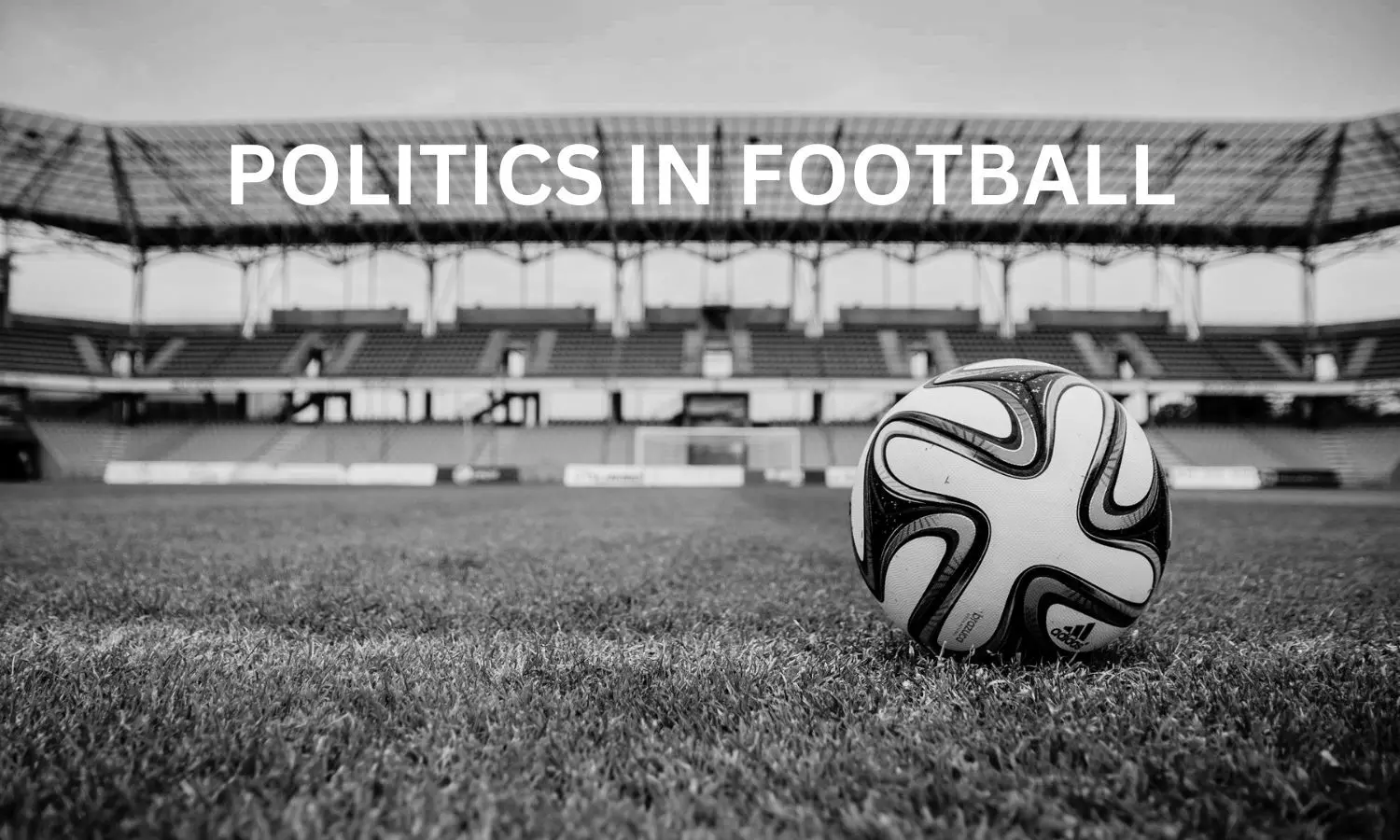Football
The football debate: Is there room for political expression in the sport
The detention of fans in Kochi, alluding to the intersection of football and politics, has sparked controversy.

Is football apolotical? (Photo credit: Pexels)
On Thursday night, four fans of the ISL club Kerala Blasters were detained by the local police for wearing keffiyehs at Kochi’s Jawaharlal Nehru Stadium.
The Kerala police spotted the four individuals in the ticket queue at the stadium and detained them at Palarivattom police station for a round of questioning.
The keffiyeh is a headdress worn by Arab men and consists of a square of fabric fastened by a band around the crown of the head. More importantly, the keffiyeh is currently being used around the world as a symbol that expresses solidarity with the ongoing Palestinian resistance.
Football has always been more than just a game.
It mirrors society and exudes contemporary politics and the culture of the people who play and watch the game.
And in addition to carrying their passion for the sport, every now and then, fans use the occasion of a game as a medium of expression for the issues that they care about.
However, this intersection of football and politics has sparked a debate.
Should football reserve a space for political expression, or should it remain neutral to avoid division?
The case for politics in football
For several fans, football has always been intrinsically linked with politics.
A fan of the Kerala Blasters team who did not wish to be named said that 'Football has always been political.'
"Look at the rivalries—Barça vs. Madrid, Celtic vs. Rangers. These aren’t just games; they’re about identity, history, and resistance. Wearing a keffiyeh is simply a peaceful expression of solidarity with Palestine, not a political agenda,” he said.
This perspective argues that football clubs are not isolated from their communities—they are symbols of identity and struggle.
Whether it’s the message behind Barcelona’s Catalan pride or Bayern Munich’s protest against Qatar’s human rights record, fans have always used football as a platform to make a statement about global issues.
Football is a global spectacle, and in today’s world, it cannot isolate itself from the social and political conflicts that plague the world.
Even on a global stage, football mirrors the prevailing political climate.
The FIFA World Cup, for instance, has often been used to showcase political power or dissent.
From the infamous Nazi propaganda during the 1936 Berlin Olympics (which included football matches) to the current 'Free Palestine' or 'Stop War' banners seen in stadiums, fans use football to express their voices because it is a theatre that millions watch.
The players themselves, as public figures, often feel responsible for speaking up about social or political issues.
Even players like Marcus Rashford and Megan Rapinoe have used their public image to speak out on issues such as child food poverty and LGBTQ+ rights, demonstrating that football can be a medium for enforcing positive social change.
As one fan put it, “Football has the power to amplify voices and create real change, especially when the world is watching.”
That said, there is another perspective on the matter.
Keeping politics out
On the other hand, there are those who argue that football should remain neutral, particularly when political gestures are not officially backed by the club or fan groups.
One Kerala Blasters fan expressed concern: “If fans want to express political views, that’s their right, but it should be done with the support of the fan base or club. Otherwise, it could divide us. Football is supposed to unite people, not create splits.”
This argument rests on the idea that political gestures and statements if displayed at games without consensus, can create a division amongst fans.
"The club and our match shouldn't be a medium for showing personal political interests," said Rahul, another fan of the club.
If individual fans or smaller groups push causes that don’t represent the broader fan base, it could lead to tensions, as was the case on Thursday night at Kochi.
Football is a community and some fear that mixing it with divisive politics risks fracturing that sacred unity.
As much as the sport is about passion and identity, it is also about a shared love for the game.
The argument, from fans such as Rahul, is that introducing political symbols—especially those not supported by the wider fan base—could diminish that sense of unity.
For them, football should remain a safe space where people can come together, regardless of their political views.
Finding a balance
While opinions will undoubtedly vary, the detention of fans at Kochi highlights the delicate balance that football fans must strike between supporting freedom of expression and maintaining unity within their fan base.
While the keffiyeh wasn’t listed among the banned items at the stadium, the arrest brings into question how far individual expressions of politics should go without creating division.
Football, at its best, is a reflection of society—where passion for the game and the issues of the world converge.
It is naïve to think that politics can ever be fully separated from football, especially considering its rich history of political involvement.
However, the question remains: how can football clubs keep political expression from fracturing fan communities?
Perhaps the answer lies in creating spaces where both sides can coexist, where fans can support causes they care about without evoking a response.
In the end, football isn’t just about goals, passes, and wins—it’s about the people who love it.
Whether that love is for the game itself, the club, or the cause it represents, the debate over politics in football will likely continue.
So, should football be free of politics? Perhaps the better question is: Can it ever be?
If history is any guide, the answer is a no—and perhaps that is but apt.
